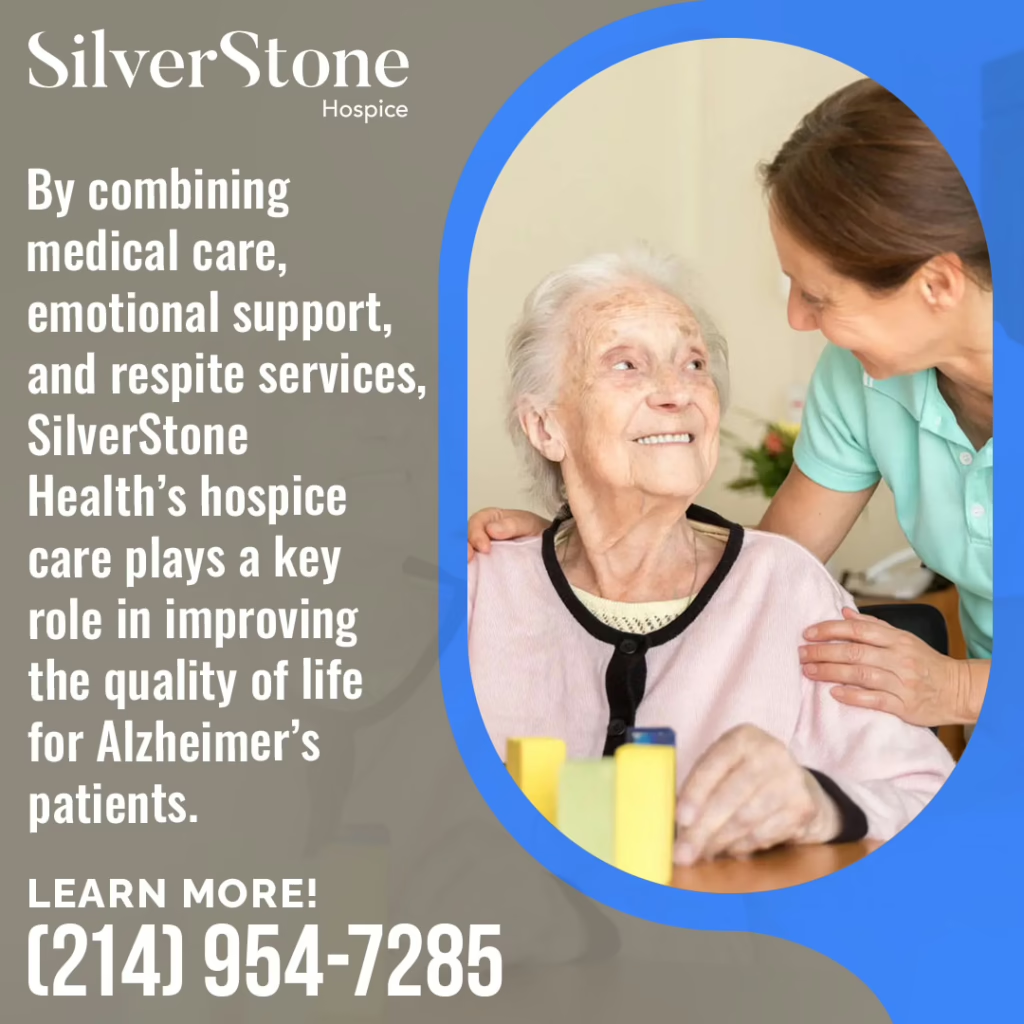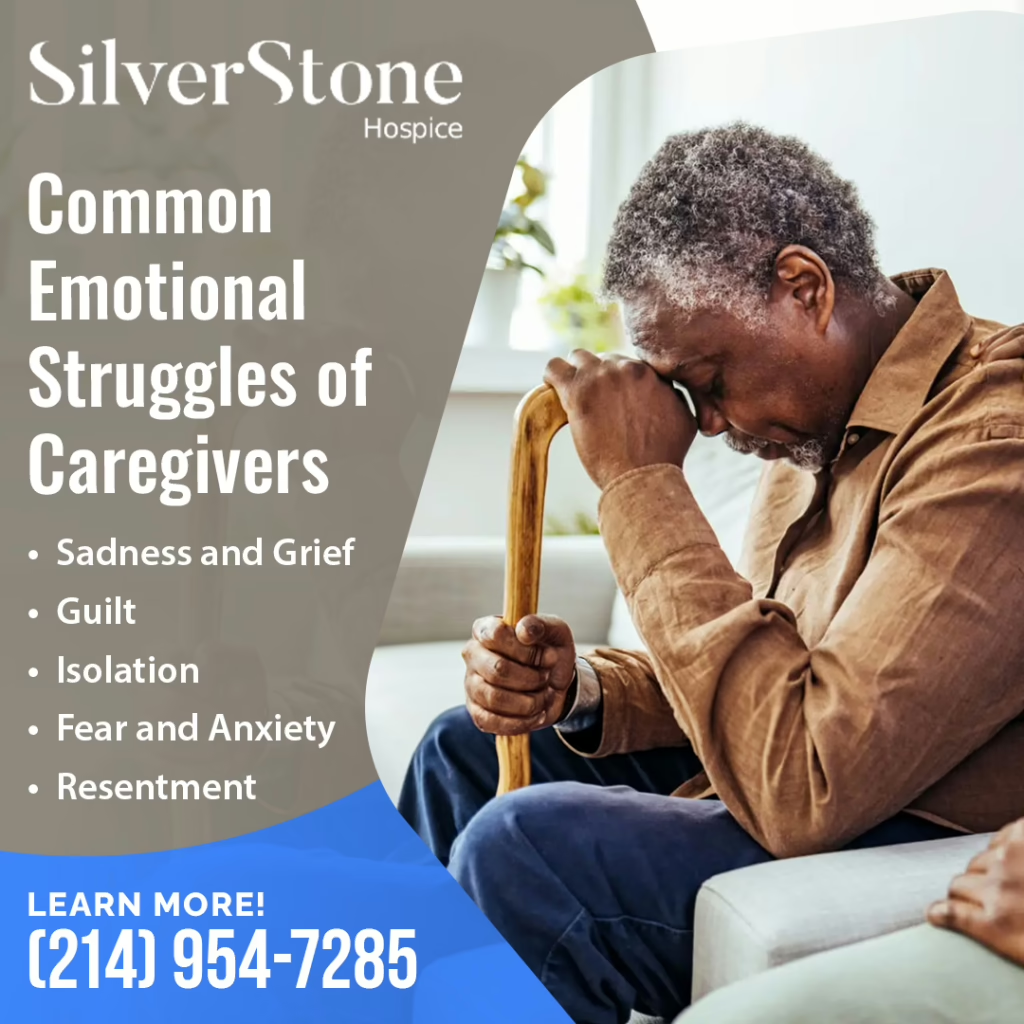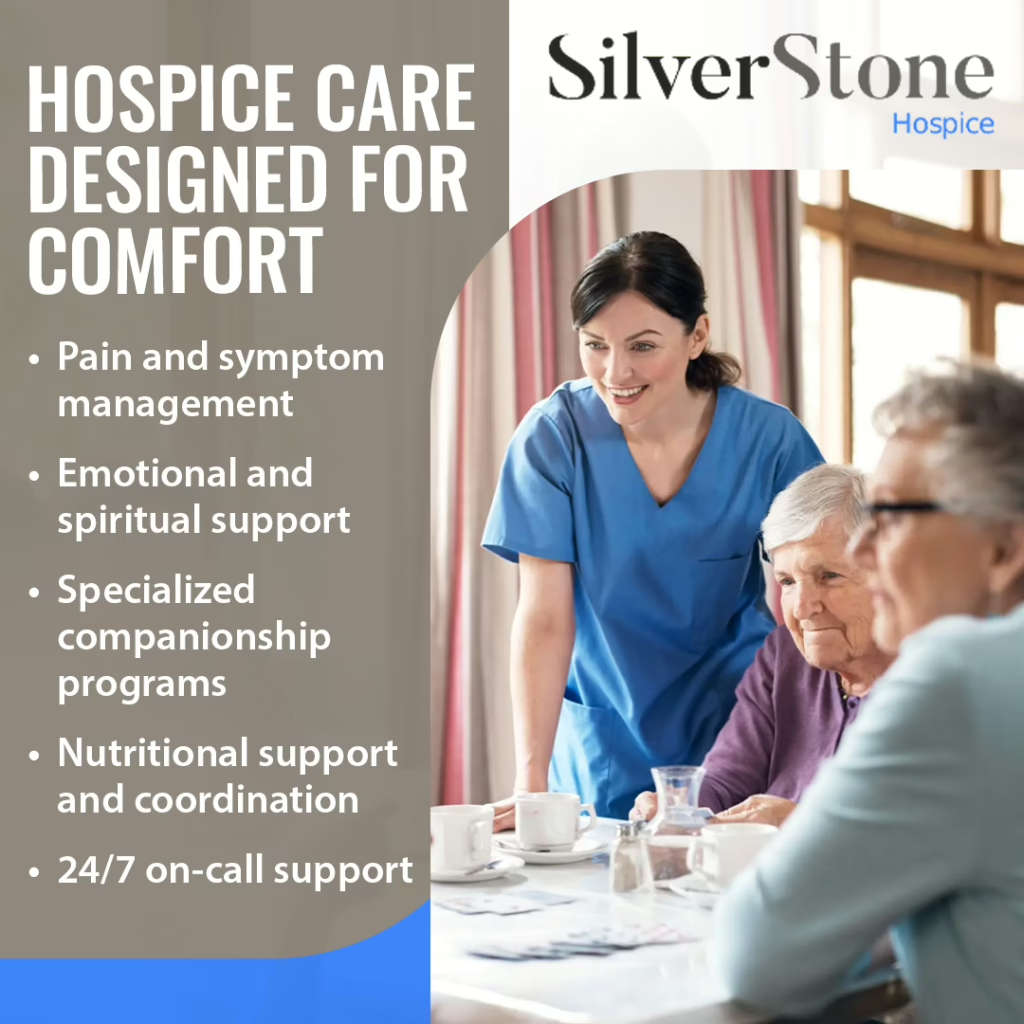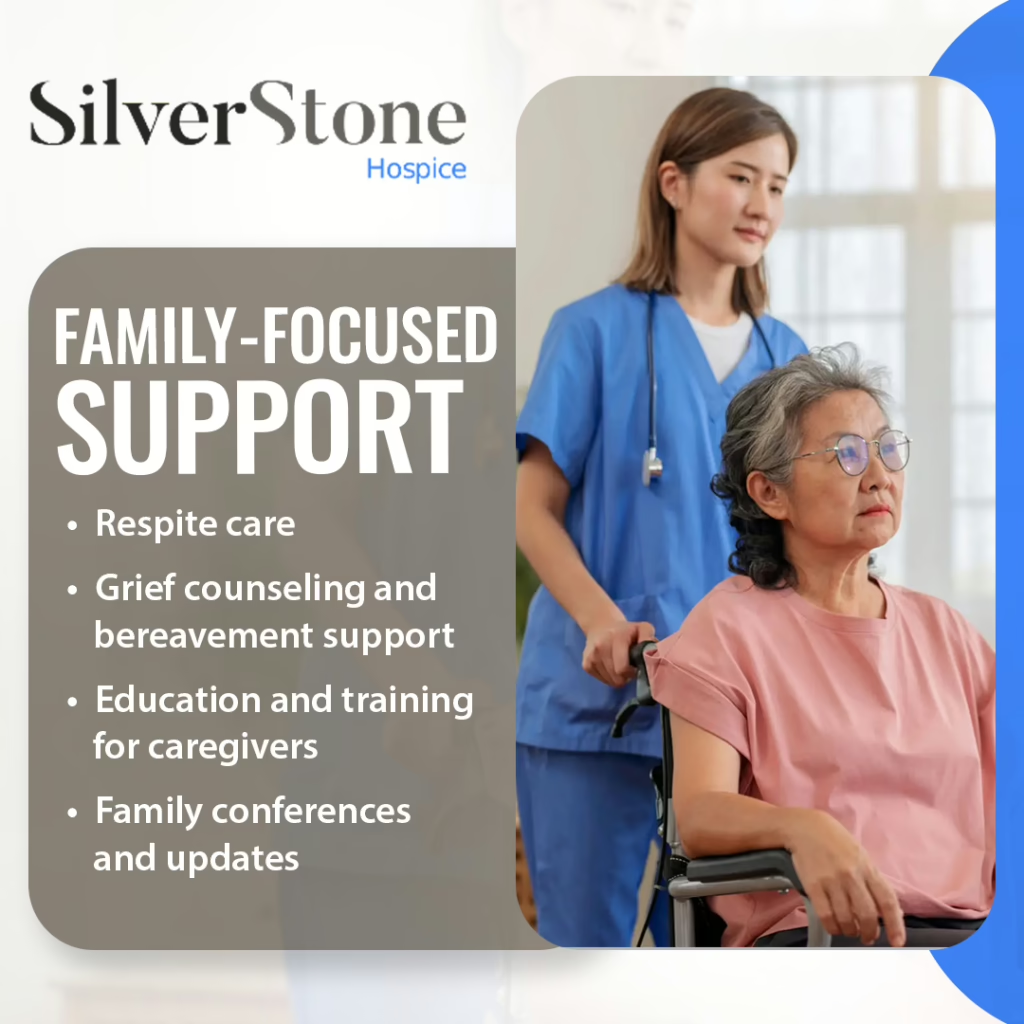
June marks Alzheimer’s and Brain Awareness Month, drawing attention to the widespread impact of Alzheimer’s disease on millions of families. SilverStone Hospice recognizes the challenges faced by patients struggling with cognitive decline and the significant emotional toll on their loved ones. This month serves as a call to action for communities to come together to support those battling this condition and to seek out resources that can help improve their quality of life. As families in Dallas, Texas, confront the realities of Alzheimer’s, recognizing the role hospice care plays becomes increasingly important in providing the necessary support.
Research from the National Institute on Aging highlights that early diagnosis of Alzheimer’s can facilitate access to critical resources and treatment options, ultimately enhancing the lives of both patients and their families. This month presents an opportunity to raise awareness about how hospice care services can integrate medical and emotional support, allowing families to focus on creating meaningful experiences during challenging times. By educating communities about available end-of-life care options, such as those provided by SilverStone Hospice, we can foster an environment of compassion and support for those affected by Alzheimer’s.
What Is Alzheimer’s Disease?
Alzheimer’s disease is a progressive neurological condition that impairs memory, thinking, and behavior. It is included in dementia, a broad category that includes a variety of conditions that impair cognitive function. With more than seven million Americans afflicted with Alzheimer’s, the disease’s effects go beyond the people who have been diagnosed; friends, family, and caregivers are also greatly impacted, frequently bearing the physical and emotional strain of providing care.
Patients find it more difficult to carry out everyday duties, including cooking, handling money, and maintaining personal cleanliness, as the illness worsens. These issues result from a deterioration in cognitive capacities, which can cause disorientation, confusion, and communication problems. Family members frequently find themselves taking on caring responsibilities, which call for patience, emotional support, and physical help. In order to make certain that patients receive the care they require at every stage of the disease, a team approach involving healthcare professionals, caregivers, and community resources is frequently necessary. Patients’ needs for varying degrees of help might vary greatly. Being aware of these challenges is necessary for families looking to navigate the complexities of caring for someone with Alzheimer’s, highlighting the importance of timely interventions and well-rounded care solutions.
What Are the Common Symptoms of Alzheimer’s Disease?
Alzheimer’s disease manifests through a variety of symptoms that evolve as the condition progresses. Early diagnosis of these symptoms is extremely important because it may greatly impact the standard of care and support that patients and their families receive. Because symptoms evolve, care needs also shift—this is where hospice becomes essential.
Early Stage Symptoms:
In the early stages of Alzheimer’s, patients may experience:
- Memory Loss: This is often the most noticeable symptom, particularly the forgetting of recently learned information or important dates and events. This memory loss disrupts daily life and can manifest in individuals frequently repeating themselves or asking the same questions over and over. For Example, a common early sign is forgetting the names of close family members.
- Planning and Problem-Solving Challenges: Individuals may find it increasingly difficult to develop and follow a plan or work with numbers. This can manifest in struggles to manage finances, follow recipes, or keep track of monthly bills, creating frustration for both patients and their families.
- Difficulty Completing Familiar Tasks: Once routine Tasks, such as driving to a familiar location, organizing a grocery list, or remembering how to operate household appliances, can become challenging. This often leads to increased dependence on family members and caregivers.
Late Stage Symptoms:
As Alzheimer’s progresses to the late stages, symptoms may include:
- Disorientation and Confusion: Patients may become confused about their surroundings, fail to recognize familiar faces or places, and have trouble comprehending time and date. This can lead to increased anxiety and fear, which can be distressing for both patients and their loved ones.
- Behavior and Personality Changes: Individuals may change their mood and behavior. They might become withdrawn, exhibit irritability, or experience dramatic shifts in personality. Such changes can create additional stress for caregivers who may struggle to understand these new expressions of the disease.
- Physical Difficulties: In the later stages of Alzheimer’s, physical abilities decline gradually. Patients may have trouble speaking, swallowing, or walking. This requires comprehensive care strategies, emphasizing the need for additional support from healthcare professionals.
Early detection and diagnosis are critical for families affected by Alzheimer’s. Identifying the disease in its early stages allows families to plan for appropriate care, access available support services, and consider treatment options that may help manage symptoms. Proactive engagement in the treatment plan can lead to improved outcomes and a better quality of life for both the individual diagnosed and their caregivers.
Why Is Early Detection of Alzheimer’s Disease Important?
Early diagnosis of Alzheimer’s disease offers significant benefits for both patients and their caregivers. According to research published in the Journal of Alzheimer’s Disease, early identification allows for timely interventions that can delay the progression of dementia, leading to improved quality of life and substantial cost savings.
How Hospice Care Supports Patients with Alzheimer’s?
Hospice care improves comfort and dignity for Alzheimer’s patients by offering medical, emotional, and daily living support. Reputable hospice care providers like SilverStone Hospice play a vital role in improving the quality of life for patients with terminal illnesses, including Alzheimer’s disease. Unlike traditional medical treatments that seek to cure or prolong life, hospice care focuses on comfort, dignity, and support during the later stages of an illness. This approach acknowledges the unique challenges that Alzheimer’s patients face, aiming to provide tailored care that addresses both physical and emotional needs.
What Does Hospice Care Involve?
Hospice care for Alzheimer’s patients encompasses a wide range of services, all designed to meet the specific needs of the individual and their family. Here are the primary components of hospice care for those affected by Alzheimer’s:
Medical Care
- Pain and Symptom Management: A physician-led team, including neurologists and palliative care specialists, works collaboratively to manage pain and any other symptoms associated with Alzheimer’s. This ensures that patients are as comfortable as possible. Treatments may include medications tailored to alleviate symptoms such as agitation, anxiety, and physical discomfort.
- Emotional and Psychological Support: Hospice care offers access to trained counselors and mental health professionals who provide supportive therapy to both patients and families. This emotional support is essential in helping families cope with the emotional distress related to the disease while also improving the mental well-being of the patient.
Personalized Support
- Companionship: One of the most significant aspects of hospice care is the companionship provided to patients. Social workers and trained volunteers spend time with Alzheimer’s patients, which can help reduce feelings of isolation and loneliness. Meaningful interactions create opportunities for patients to engage, reminisce, and experience joy even during challenging times.
- Assistance with Daily Activities: Patients may require help with essential daily activities such as bathing, dressing, eating, and mobility. Hospice care staff are trained to assist with these tasks with kindness and respect, ensuring that patients maintain their dignity and comfort in the process.
Family Caregiver Support
- Respite Care Options: Family members often become the primary caregivers for patients with Alzheimer’s, a demanding role that can lead to physical and emotional exhaustion. Hospice care provides respite options, offering family caregivers much-needed breaks to recharge and prioritize their well-being.
- Education on Managing Symptoms: Education is a key component of hospice care. Family members receive training and resources to better understand Alzheimer’s disease, including techniques for effective communication and strategies for managing challenging behaviors. Knowledge helps families to feel more competent in providing care and allows them to make ideal decisions about their loved one’s ongoing needs.
How Does Hospice Care Improve Quality of Life for Alzheimer’s Patients?
Hospice care serves as a critical support system for patients with Alzheimer’s disease and their families. This approach goes beyond merely addressing medical needs; it also encompasses the emotional and social dimensions of care. By providing extensive services, hospice creates an environment where dignity and comfort prevail, allowing patients to experience a higher quality of life even as they face the challenges of a progressive illness.
With hospice care, families can focus on cherishing their time together rather than feeling overwhelmed by the complexities of caregiving. They gain access to resources and support that can help them navigate this difficult journey. Families can engage in meaningful interactions, making the most of their time with loved ones while hospice staff manage the intricacies of care.
Choosing hospice care does not signify a loss of hope; rather, it represents a shift towards prioritizing what matters most in the final stages of life. This meaningful transition enables families to be present with one another, sharing moments of love and connection while receiving assistance in managing symptoms and planning for the future. Embracing hospice care fosters an experience that honors the individual and supports the family, highlighting the importance of compassion and dignity during challenging times.
How Does SilverStone Hospice Support Alzheimer’s Patients with Hospice Care?
Providing hospice home care that is patient-centered brings us immense satisfaction at SilverStone Hospice in Dallas. Serving families in the Dallas area, our dedicated team is committed to delivering high-quality care tailored specifically for individuals battling Alzheimer’s disease. Our goal is to enhance the quality of life for patients while providing essential support to families during this challenging journey.
Key Services We Provide:
- 24/7 Availability: Our team remains accessible day and night, ensuring that patients and their families receive immediate support whenever it is needed. Whether it’s a question, concern, or a need for assistance, our staff is just a call away, ready to respond promptly and compassionately.
- Personalized Care Plans: We understand that every patient’s journey with Alzheimer’s is unique. That’s why we create tailored care plans designed to meet the specific needs and preferences of each individual. By involving families in the planning process, we aim to provide care that reflects the patient’s wishes and promotes their comfort and dignity.
- Emotional Support for Families: The emotional toll of caring for someone with Alzheimer’s can be significant. We offer counseling and support services for family members dealing with grief, loss, and the complexities of caregiving. This integrated support helps families cope with the challenges they face, allowing them to have meaningful interactions with their loved ones.
At SilverStone Hospice, our commitment to compassionate care not only addresses the medical needs of Alzheimer’s patients but also prioritizes emotional well-being for families. Together, we work to establish a caring atmosphere where families may feel the intimacy that comes from spending time together and patients can find serenity, all while getting professional assistance managing the complexities of end-of-life care.
Supporting Research Efforts
Supporting Alzheimer’s research is vital for future advancements in care strategies. As highlighted by the Alzheimer’s Association, significant funding efforts are underway to discover better treatments. Investing in research drives the discovery of effective medications and interventions, ultimately improving care for patients and families.
Ongoing Initiatives Include:
- Drug Discovery: Major investments in new drug candidates to target Alzheimer’s symptoms.
- Biomarker Research: Identification of indicators for early detection and diagnosis.
Advocacy and Community Support
As we commemorate June as Alzheimer’s and Brain Awareness Month, it’s essential to raise awareness of the resources available for patients and families. It encourages advocacy efforts aimed at increasing funding for research and enhancing the support offered to those affected by brain diseases.
Ways You Can Get Involved:
- Join Support Groups: Engaging in community conversations can help break the stigma surrounding Alzheimer’s.
- Attend Educational Events: Learning about Alzheimer’s and brain health can help families and friends feel more prepared and confident.
- Promote Policy Changes: Advocate for policies that support research funding and patient care initiatives.
Why Choose SilverStone Hospice?
When it comes to hospice care in Dallas, SilverStone Hospice stands out for its commitment to patient dignity and comfort. We have earned recognition for our evidence-based practices and compassionate care. Here are a few reasons families choose us:
- Innovative Care Approach: We adapt our care strategies based on the latest research and advancements in palliative care.
- Team of Specialists: Our interdisciplinary team includes physicians, nurses, and social workers who work together to provide complete care.
- Community Engagement: We collaborate with local healthcare providers to tackle public health challenges.
Contact SilverStone Hospice
If you or a loved one is in need of hospice palliative care or hospice care facilities in the Dallas-Fort Worth Metroplex area, reach out to us at SilverStone Hospice. We are here to help you navigate these challenging times with compassion and expertise. By choosing SilverStone Hospice, you prioritize quality care and support for those facing Alzheimer’s disease. Together, we can create a nurturing and supportive environment that enhances the quality of life for patients and their families during difficult times. For more information, please call us at (214) 954-7285 or email us at info@silverstonehealthcare.com.
Raising Awareness, Offering Hope
In recognition of Alzheimer’s and Brain Awareness Month, let’s commit to supporting those affected by this condition. Through hospice care services, we can provide the compassion and assistance needed for both patients and families. This month, let’s raise awareness, promote education, and advocate for necessary changes in how we care for our loved ones dealing with Alzheimer’s. Together, we can enhance the conversations and support networks that matter most.
For additional information on Alzheimer’s disease and brain health, consider visiting:
By leveraging available resources and supporting each other, we can create a future where those affected by Alzheimer’s can live with dignity and support.





